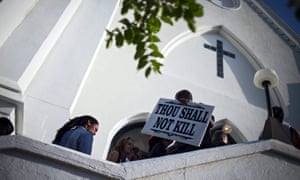https://youtu.be/lUrXuS0sPOo
https://youtu.be/P82abyLlid8
https://youtu.be/MelLrrx9PFk
https://youtu.be/IHqp9V1-8eY
https://youtu.be/klL6Go-FC5Q
Gunman live-streamed shooting at mosques
Christchurch appears to be the latest in a global series of rightwing terrorhttps://youtu.be/P82abyLlid8
https://youtu.be/MelLrrx9PFk
https://youtu.be/IHqp9V1-8eY
https://youtu.be/klL6Go-FC5Q
Gunman live-streamed shooting at mosques
CHRISTCHURCH: An Australian gunman (pic) involved in attacks on New Zealand mosques that left at least 49 people dead published a racist manifesto on Twitter beforehand then livestreamed his rampage, according to an online analysis.
Police called for people not to share the video, which showed the gunman shooting repeatedly at worshippers from close range.
“Police are aware there is extremely distressing footage relating to the incident in Christchurch circulating online,” New Zealand police said in a Twitter post.
“We would strongly urge that the link not be shared. We are working to have any footage removed.”
The media analysed a copy of the Facebook Live video, which shows a clean-shaven, Caucasian man with short hair driving to the Al Noor Mosque in central Christchurch, then shooting as he enters the building.
It was determined the video was genuine through a digital investigation that included matching screenshots of the mosque taken from the gunman’s footage with multiple images available online showing the same areas.
The manifesto detailing motivations for the attack was posted yesterday morning onto a Twitter account with the same name and profile image as the Facebook page that streamed the attack.
Entitled The Great Replacement, the 73-page document said the gunman had wanted to attack Muslims.
“Police are aware there is extremely distressing footage relating to the incident in Christchurch circulating online,” New Zealand police said in a Twitter post.
“We would strongly urge that the link not be shared. We are working to have any footage removed.”
The media analysed a copy of the Facebook Live video, which shows a clean-shaven, Caucasian man with short hair driving to the Al Noor Mosque in central Christchurch, then shooting as he enters the building.
It was determined the video was genuine through a digital investigation that included matching screenshots of the mosque taken from the gunman’s footage with multiple images available online showing the same areas.
The manifesto detailing motivations for the attack was posted yesterday morning onto a Twitter account with the same name and profile image as the Facebook page that streamed the attack.
Entitled The Great Replacement, the 73-page document said the gunman had wanted to attack Muslims.
The title of the document has the same name as a conspiracy theory
originating in France that believes European populations are being
displaced in their homelands by immigrant groups with higher birth
rates.
The manifesto said the gunman identified himself an Australia-born, 28-year-old white male from a low-income, working-class family.
He said that key points in his radicalisation were the defeat of the French far-right leader Marine Le Pen in 2017 elections, and the death of 11-year-old Ebba Åkerlund in the 2017 Stockholm truck attack.
Australian Prime Minister Scott Morrison confirmed the attacker at the Masjid al Noor mosque was an Australian.
“We stand here and condemn, absolutely the attack that occurred today by an extremist, right-wing, violent terrorist,” said Morrison.
New Zealand authorities said that three people had been arrested, but their identities were not made public.
The media confirmed the authenticity of the live-streamed video partly by matching the distinctive features at the mosque seen in the footage with images available online.
These included a fence, postbox and doorway at the entrance to the mosque. — AFP
The manifesto said the gunman identified himself an Australia-born, 28-year-old white male from a low-income, working-class family.
He said that key points in his radicalisation were the defeat of the French far-right leader Marine Le Pen in 2017 elections, and the death of 11-year-old Ebba Åkerlund in the 2017 Stockholm truck attack.
Australian Prime Minister Scott Morrison confirmed the attacker at the Masjid al Noor mosque was an Australian.
“We stand here and condemn, absolutely the attack that occurred today by an extremist, right-wing, violent terrorist,” said Morrison.
New Zealand authorities said that three people had been arrested, but their identities were not made public.
The media confirmed the authenticity of the live-streamed video partly by matching the distinctive features at the mosque seen in the footage with images available online.
These included a fence, postbox and doorway at the entrance to the mosque. — AFP
 |
| People arrive for Sunday services at the Mother Emanuel AME church in Charleston, South Carolina after a shooting. Photograph: John Taggart/EPA |
In the past eight years, across continents, white supremacists have repeatedly chosen the same targets for shootings, stabbings, bombings and car attacks.
The mass shootings on Friday targeting two mosques in Christchurch, New Zealand, killing 49 people, appear to be the latest in a drumbeat of attacks motivated by the belief that the white race is endangered. The perceived threats include Jews, Muslims, immigrants, refugees, feminists and leftist politicians.
The attackers have not been part of a single white supremacist group. But they are steeped in the same global racist propaganda, fluent in the same memes and conspiracies, and the perpetrator of one attack often references the names of the killers who came before.
In less than a decade, these attacks have included:
Read more: https://www.theguardian.com/world/2019/mar/16/a-history-of-recent-attacks-linked-to-white-supremacism
Massacre livestream tests internet governance
The internet has promoted economic and social development. Such a function must be ensured, its openness maintained. Meanwhile, chances should be reduced for the internet to stir up troubles for society or severely mislead social ideologies. Which country does a better job will be tested by its internet economy's achievements and comprehensive fulfillment of the nation's economic and social development.Source: Global Times | 2019/3/18 21:38:42
Mass shooting exposes Western flaws
The Western established advantages are indeed tremendous, but its self-adjustment ability is weakening, and some so-called adjustments often surrender to populism. The West is entering a problematic period that strikes at its very foundation.Source: Global Times | 2019/3/17 20:43:40










